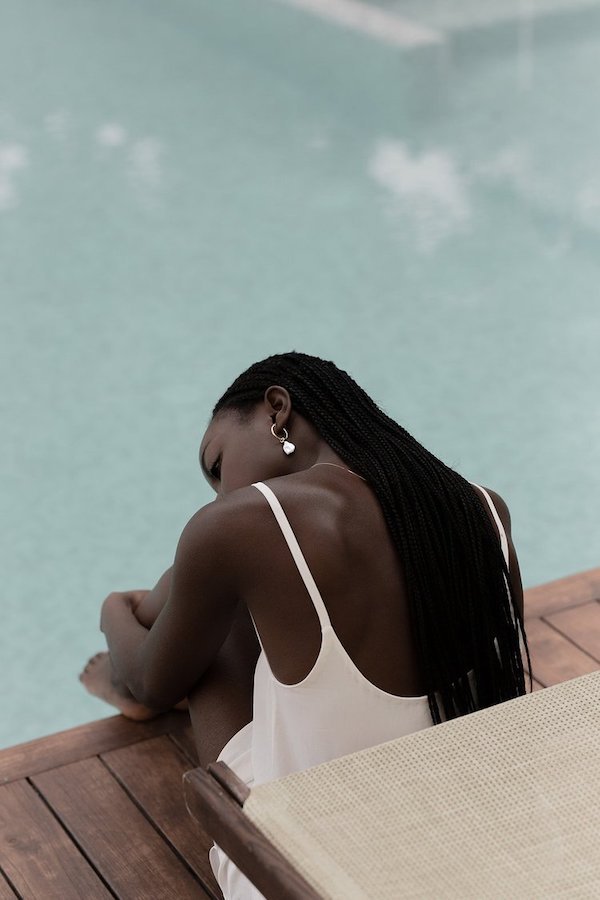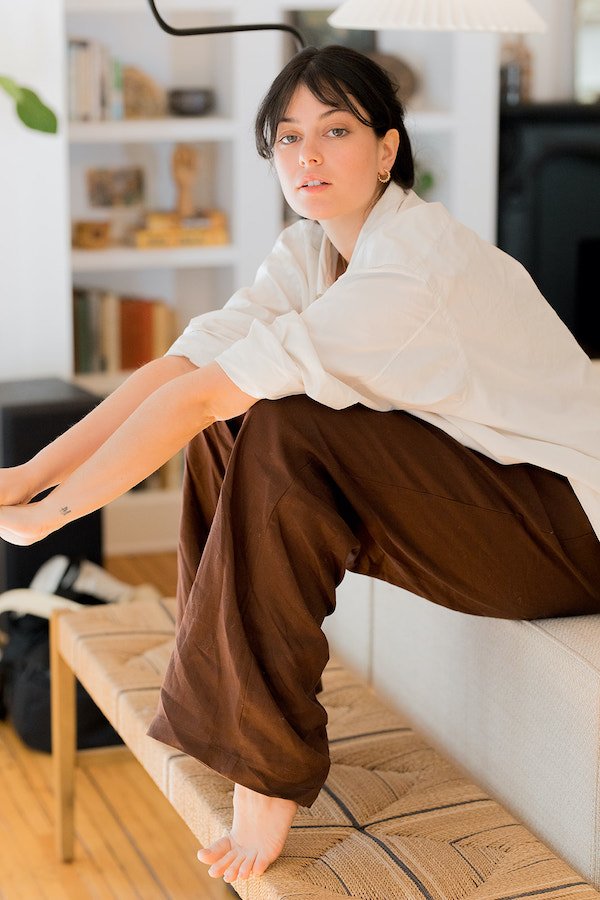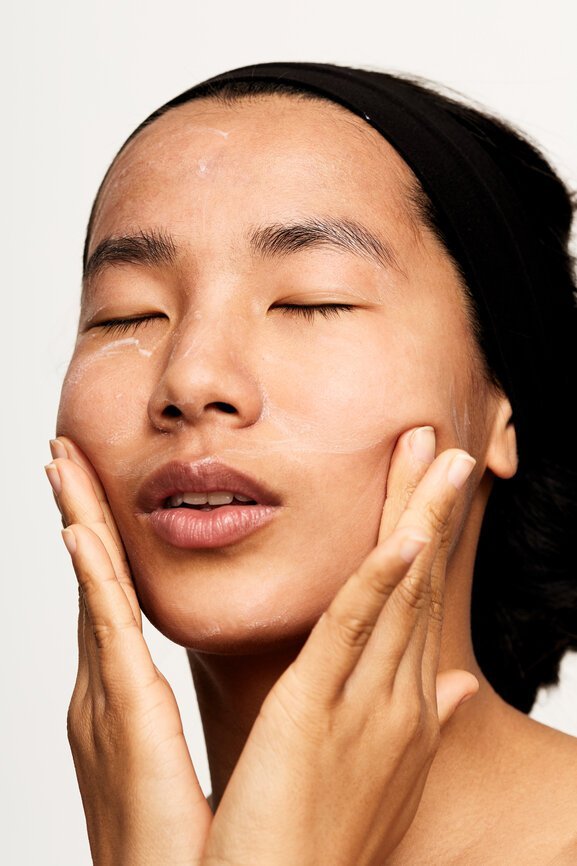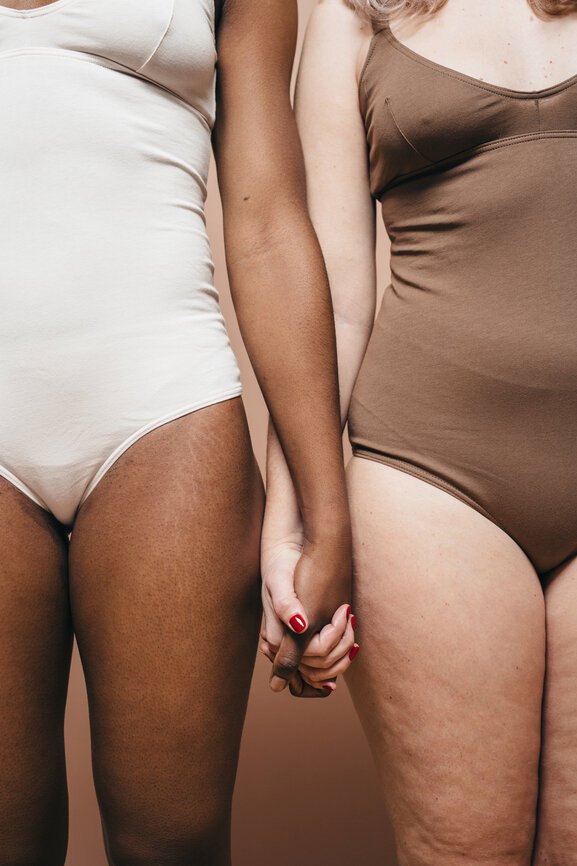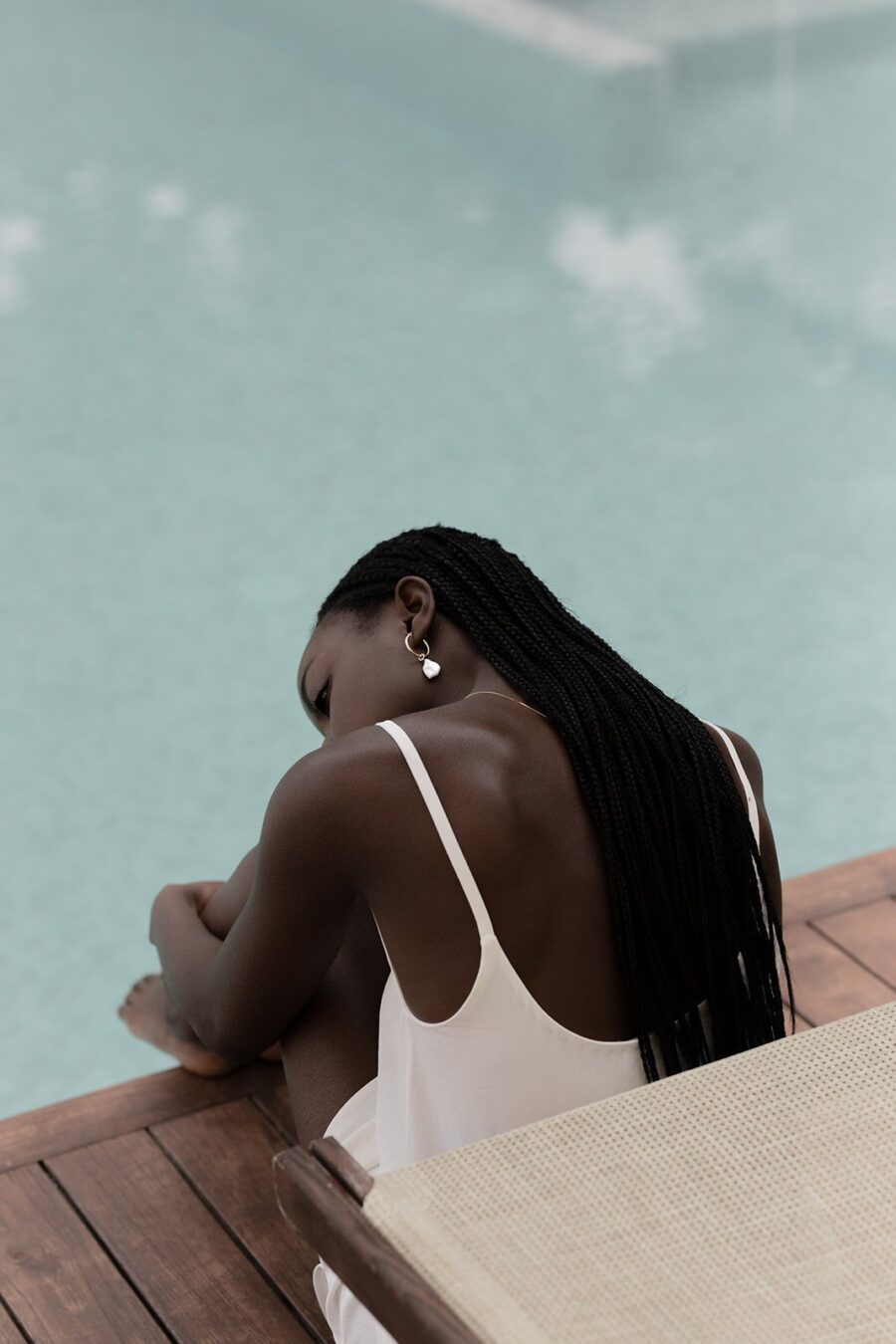
How I’ve Learned To Love My Vulva
Loving My Vulva Ultimately Helped Me Love Myself
Let me start by saying that despite being a somewhat progressive, 30-something-year-old educated woman, the word “vulva” still doesn’t roll off my tongue the way it should. To this day, it still feels a little bit off, inappropriate, or even dirty—and that’s exactly where my story begins.
I grew up with a lot of body shame—from being the only Black girl in a white world to being the tallest and always a bit on the chubby side. The odds were stacked against me when it came to living up to the official standards of beauty. Add to that, self-love and care weren’t topics discussed in my home, let alone my religious environment.
“I grew up being taught that anything regarding sex and sexuality was deemed sinful and dirty.”
By the time I was a teenager, I had nothing but disgust left for my body. The disgust stretched from my nose that wasn’t European-looking, to the fat on my belly and arms, all the way to—you guessed it—my vulva. In addition to feeling like nothing looked right “down there,” I grew up being taught that anything regarding sex and sexuality was deemed sinful and dirty. It was a perfect self-loathing storm, if you will, which made discovering my full self and learning about my body a non-existent notion in my life.
(I should admit at this point that I only recently discovered that what I have been calling my “vagina” my whole life has, in fact, been my vulva, and that the vagina is the birth canal. Go figure. Anyway, back to my story.)
In my late teens, I compensated for my lack of self-love by being an overly outgoing, seemingly confident girl. I wasn’t actually okay on the inside because I had never learned to love myself, let alone my vulva. For years, I didn’t go to my annual Pap smear because I was deeply fearful the nurse would take one look, gasp, and inform me that I needed surgery. (I’m not exaggerating.) When I finally found the courage to go a couple of years ago, I figured that if things were as bad as I thought they were, I could at least take the necessary steps to fix whatever was wrong.
To say that I was speechless when I left the practice that day is an understatement.
“I’d been convinced for all those years that…I was somehow deformed and not quite right.”
The nurse had a lovely chat with me, did the test, and said nothing about the looks of my vulva at all. Like, nothing. I couldn’t believe it. I’d been convinced for all those years that something was seriously wrong, that I was somehow deformed and not quite right. I left the practice determined to unravel the lie that had stopped me from loving her for so long—my vulva, that is.
My first action was to buy new underwear. I am somewhat ashamed to admit that, at that point, I hadn’t bought new underwear in years. I didn’t want to think about my vulva, so I just neglected her very existence. That day though, I made a decision to change and acknowledge her by investing in her—not for anyone else, but for me. I paid attention to the quality of the materials I was buying and the way my new underwear fit.
I also began doing research and discovered that I wasn’t alone in my struggle. At first, I felt relieved. Then I got angry. Angry on behalf of the little girls, as young as 9 years old, who consider labiaplasty because they’ve been taught something is wrong with their vulva from a young age. Angry on behalf of others who, like me, know so little about their bodies. Instead of being encouraged to learn, society teaches us to bury parts of themselves so deep that no matter how much someone else loves them, they never feel it in its entirety for fear of hidden places being discovered.
“Society teaches us to bury parts of themselves so deep…for fear of hidden places being discovered.”
The final thing I did (and still do to this day) was look at her. At first, it felt incredibly daunting and weird to look at my vulva; though I now know that nothing is wrong with her, I didn’t think I’d want to look. But I did. I got a mirror and started to get to know her, to get used to looking at her, and to embrace her fully.
I essentially started to expose those hidden parts of my body to light, and to love from myself. I created a safe space and began to say all the things I knew I needed to hear, whether I fully believed them or not. I still do it now because decades of shame don’t just disappear.
“I began to say all the things I knew I needed to hear, whether I fully believed them or not.”
I recently heard an elder say that we can only learn to love ourselves and have a healthy measure of self-confidence when we learn to love our vulvas. But that’s a hard thing to do when the narrative around vulvas and vaginas has been on a downward spiral for such a long time. The fact that many of us to this day—including myself up until recently—can’t accurately name their anatomy certainly says something.
Many of us have been led to believe that parts of our humanity are bad. When it comes to our bodies, we’re told that our worth depends on our shape, our size, the color of our skin, and even our vulvas.
Some of us have also felt that we aren’t good enough on the inside, that our personalities and emotions aren’t up to par. Pain, fear, vulnerability, and at times, even our tears, have often been positioned as invalid. At least this is how it was in my world.
But learning to love my vulva helped me learn what it means to love even the hidden parts of me that I didn’t think were lovable at all. Those lessons apply to loving my full self, too, like in buying new underwear. That act encouraged me to start taking better care of myself and put healthy boundaries in place. (Don’t you love the parallels to buying underwear, ha!) In the same way, doing research taught me about others who, like me, had never learned to love themselves. I started reading womxn’s stories of self-discovery and surrounding myself with more positive energy.
Lastly, by looking at my vulva, I began to see myself through the eyes of love. I started affirming my physical, emotional, and spiritual self every time I looked in the mirror. It’s been transformative to remind myself of what I like about me, my personality, and my energy.
“I started affirming my physical, emotional, and spiritual self every time I looked in the mirror.”
Loving my vulva, and loving myself, didn’t happen overnight. It took a lot of care and attention and I am by no means done. I know that I won’t always like what I see and I know that this will be a lifelong journey. But I’m on it now and I know there’s no turning back. I have learned that it all deserves to be loved. I deserve to be loved. Asymmetric labia and all.
Jess Mally is a London-based writer, speaker, creative, and producer. She is also the co-founder of BELOVD agency and the host of The Third Way podcast. With a passion for social change, mental health, the arts, and spirituality, she hopes to use any and all means available to her to tell stories that shape a better world. Follow her work on Instagram.
